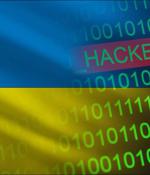Security News

Professional services and insurance giant AON has suffered a cyberattack that impacted a "Limited" number of systems. AON is a multinational professional services firm offering a wide array of solutions, including business insurance, reinsurance, cybersecurity consulting, risk solutions, healthcare insurance, and wealth management products.

Giant Japanese automaker Toyota Motors has announced that it stopped car production operations. Toyota said today that the incident caused it to decide to suspend the operation of 28 production lines in 14 plants in Japan, starting tomorrow, Tuesday, March 1, 2022.

NCC Group released figures indicating a huge jump in the use of ransomware, with America the top target at 53 per cent of monitored infections, and Europe at 30 per cent. The top targets remain government organizations and the industrial sector, which account for around 20 per cent each of the total.

US chipmaker giant Nvidia confirmed today it's currently investigating an "Incident" that reportedly took down some of its systems for two days.Systems impacted in what looks like a cyberattack include the company's developer tools and email systems, as first reported by The Telegraph.

CybelAngel published a research revealing that data leaks and shadow assets are the greatest source of exposure to cyberattacks faced by large organizations across the globe. Based on data from a sample group of customers, the research report reveals that data leak incidents increased, overall, by 63% and vulnerable shadow assets exposure grew by 40% in 2021.

The White House has denied reports that President Biden has been presented with an arsenal of ways to launch massive cyberattacks against Russia - attacks designed to disrupt the country's ability to sustain its military operations in Ukraine. Russia's military forces have been deployed in a ?full-scale attack against Ukraine.

Meyer Corporation, the largest cookware distributor in the U.S., and the second-largest globally, has informed U.S. Attorney General offices of a data breach affecting thousands of its employees. According to the notification letter shared with the U.S. Attorney General offices of Maine and California, Meyer fell victim to a cyberattack on October 25, 2021.

Cyberattack threat: Corporate users infected via Microsoft Teams. Researchers from Avanan, a Check Point company, have announced the discovery of attacks exploiting the Microsoft Teams communication platform to infect corporate users.

Report: Pretty much every type of cyberattack increased in 2021. SonicWall's 2022 Cyber Threat Report has come to some alarming, but likely unsurprising, conclusions: Pretty much every category of cyberattack increased in volume over the course of 2021.

The websites of the Ukrainian military and at least two of the nation's biggest banks were knocked offline in a cyberattack today. On social media, it reported "Technical works on restoration of regular functioning" are underway after it was "Probably attacked by DDoS: an excessive number of requests per second was recorded." Other military sites are also apparently suffering outages.